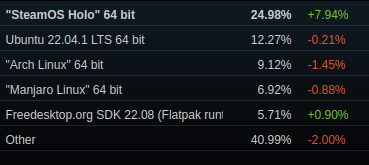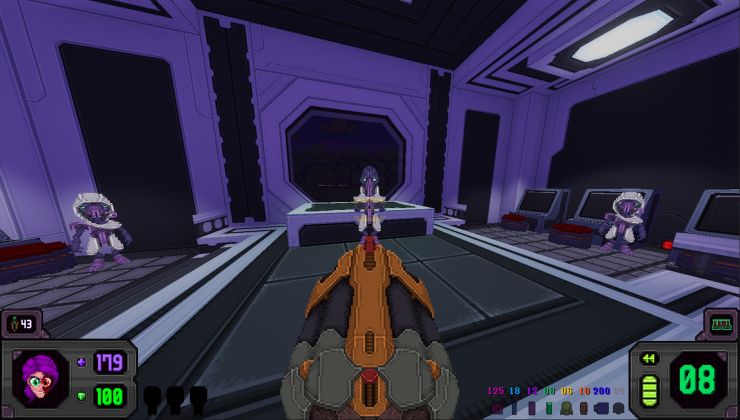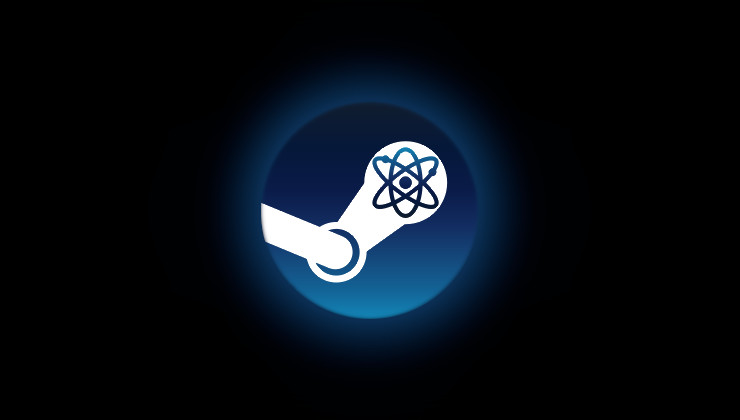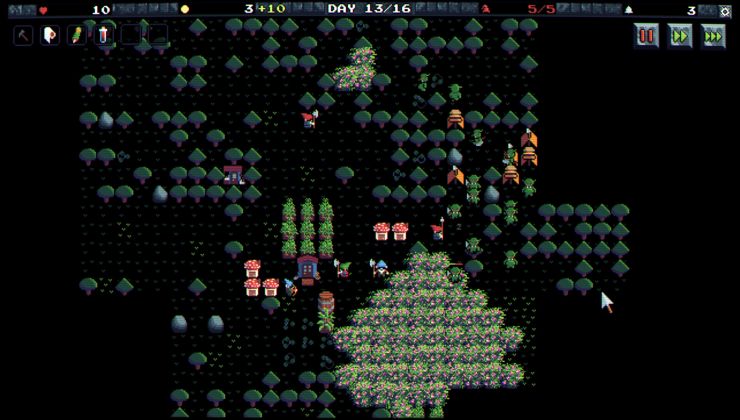Back in 2020 I pointed out what were the best Linux distributions for gaming, so here's the current state and what you should go for in 2023.
The thing is: not a lot has changed since my last article. Linux is still a minefield of many different distributions for people, and it can be very confusing. There's a lot of articles out there recommending really random and outdated distributions in lists too, so here's the real thing.
Without getting bogged down into packaging issues, and just giving you the basics of "this will work just fine" — go and install Ubuntu. People will (and I expect them to) argue for others, and people are free to, but a lot of people suggest other distributions for the wrong reasons. Manjaro has too many problems both technical and management, Arch can and will break things if you don't know exactly what you're doing, Fedora is messy with NVIDIA drivers and SELinux on Fedora is a nuisance and so on. Ubuntu is still to this day, the most simple distribution of Linux to install and get gaming.
Ubuntu isn't perfect by a long shot, but it remains as my number 1 choice to suggest to people both new and old to get into Linux and get gaming. It's one of the most used on desktop by any statistic you can find, which also means troubleshooting it is generally easier too.
With the Ubuntu LTS (long term support) releases, you also get support for at least 5 years, so you don't have the hassle and potential breakage of major system internal updates for quite a long time.
Valve's own stats show Ubuntu as one of the most popular too and it has been the same since Steam came to Linux.
As a user of Fedora myself, take it from me if you're in any way new to Linux: just go with Ubuntu. If you ever decide you "really know Linux now", then you can think about using something else. Don't make it difficult for yourself.
How might this change in future?
Well, Valve are here with the Steam Deck and SteamOS. Eventually, Valve will release SteamOS 3 so anyone can download it and install it. That might end up being a good pick, but right now it's not on the table as it's not released and anyone making their own version of it (like HoloISO and others) are too small to recommend serious use of them.
If you need help and support, specifically for Linux and also Steam Deck gaming, you can try asking in our Forum, Discord, IRC and Telegram.
In general, they don't want to know anything about their computer (mobile device), it just needs to function near 100% of the time and be able to "run the apps/games" and "visit the sites" that they want or need. Updates of any form are met with resistance or pure apathy. Good practices regarding data safety or backups are not considered or understood. As a FOSS advocate, I want to help these people have a safe and successful computing experience, but the lack of motivation/desire/understanding I encounter make it near impossible to recommend any Linux distribution.I don't really get it, to be honest. These are real issues I guess, but what do they have to do with not recommending Linux distributions? I mean, it's not like Windows is nice to work with vis-a-vis updates, or does anything for you in terms of data safety or automagically creating backups without you having to notice. And Linux distros can visit the sites, run the games, and run apps that are generally equivalent (but cheaper) to what they're used to. The more user friendly ones do it with LESS need to fiddle around than Windows. So I mean, assuming you can't actually ban these people from using computers, why shouldn't they do it with Linux?
Y'know, I use Windows at work, but because we have IT people I don't have to administer it. But a few months ago, i bought a basic little computer to attach to the TV, just to surf the web so my wife can watch the news and stuff. It came installed with Windows and, feeling lazy, I initially just left Windows there--why not? Just running a browser. It was a massive pain. Windows is nagware. My wife was constantly calling me over because of some mysterious message that she thought meant something serious but was actually just Windows saying something you can click and forget, for no particular reason except to look vaguely ominous as far as I could tell. Or because they wanted you to switch to fucking Edge. Or because they wanted to know if you really meant it when you set settings to "don't phone home very much" or if you wouldn't rather switch to doing things the Microsoft spy-on-you way. And the updates, argh. Wiped Windows, put in Mint, clear sailing ever since.
Mint is a great media player ootb. I don't need a ten foot interface TBH. im quite happy to just have a typical desktop on the TV with some larger icons / fonts and a wireless keyboard/remote. I prefer it. a desktop filled with emulators, browsers and media players that's stable and familiar more to me than a dumbed down smart phone type interface. Although you can have an icon for the new steam big picture too and have the best of both worlds.
It's also the goto USB live boot distro if your system breaks whilst you fix it, or just get straight on the web and do work if your main machine takes a dump and you just need to get going.
I wouldn't go to other non-xUbuntu Linux forks. I tried Arch, it broke suddenly taking some of my documents with it. It's because I didn't read every text file every single word in new updates while updating, and didn't type dozens of commands and made changes in definition files before installing new updates. It's ridiculous, it's not a mainframe server, it's a PC.
Fedora is rpg based, in my opinion thats inferior than deb. Although I would say Fedora is more technically progressive than Ubuntu and is a kernel pool for Red Hat Enterprise Linux which is a a good, but paid Linux.
Gentoo and Slack and other "compile it" variants are IMO not for the usual user..
I don't know how is SteamOS, is it still developed, is it better? But I don't use Linux for gaming only so it's not in my choice list.
So Kubuntu.
Last edited by prosoor on 1 Dec 2022 at 11:14 pm UTC
Fedora is what it is. Influential, pioneering, example-setting but not meant for the "desktop user".
How many Linux-savvy content creators tried hard last year to convince us that Fedora is "THE default Linux desktop"?
Fedora is what it is. Influential, pioneering, example-setting but not meant for the "desktop user".
Although I would say Fedora is more technically progressive than Ubuntu and is a kernel pool for Red Hat Enterprise Linux which is a a good, but paid Linux.
Yep, it's a testing ground using newest technology and sometimes doing questionable modifications... I still remember when some projects refrained to build when using a RedHat-"optimized" gcc (before the name changed from RedHat to Fedora and there was no RedHat Enterprise Linux) because they knew it definitely would break the application.
RHEL though is a good distribution, well supported and most of the time very stable, but almost unusable for gaming.
I really hope Fedora closes the gap, they are doing a Raspberry Pi release, but I think some of their strict adherence to FOSS and making it harder to get mp3 codecs and other "absolutely proprietary" stuff do cost them the lead.This has little to do with philosophy and everything to do with [MPEG-LA's software patent business model.](https://blog.chiariglione.org/a-crisis-the-causes-and-a-solution/)
Unfortunately, patented codecs like H.264 (mp4) and mp3 can only be distributed after paying MPEG-LA a licensing fee for every person you distribute it to; unless you work out an agreement with MPEG-LA like Cisco did to distribute H.264 to an unlimited number of people, which is what allows Firefox users to play that codec—but that is far from cheap. While it's probable that MPEG-LA won't go after Red Hat, SUSE or Canonical for this, MPEG-LA is completely legally in the right to do so.
This doesn't only affect free software. DaVinci Resolve does not include encoders/decoders for H.264 or AAC due to patents in their GNU/Linux version of the free version of their software, and the Studio version still doesn't include AAC.
Fortunately, mp3's last patents expired in 2017. H.264's patents will last until 2027 or 2032 depending on who you ask. [You might think that 30 years for a video codec's patents to expire is a long time, especially with the fast-moving software landscape.](https://wiki.endsoftwarepatents.org/wiki/Use_software_and_functionality_from_20_years_ago) You're not the only one who thinks so. Facebook, Mozilla, Netflix, Amazon, Cisco, Google, Intel, Microsoft, and even Apple (despite their reluctance to implement support for VP9) all agree that they want nothing more to do with patented codecs. [That's why they formed the Alliance for Open Media and created AV1](https://en.wikipedia.org/wiki/Alliance_for_Open_Media) in response to H.265 and its significantly more complicated (and expensive) patent pools.
If you're wondering why H.265/HEVC (and now VVC) never got much adoption compared to its predecessor, this is why. Everyone is sick of the patent pool model except for MPEG-LA. However, TV stations and broadcast media are still happy to adopt these new standards, so it's unlikely it will go away completely.
For the gaming aspect: make an Arch Linux distrobox container. Install Steam and Lutris, and use Mesa-git (if you're on AMD) inside the container. You now have a bleeding edge container just for Steam and Lutris while your base system can still run stable Mesa. Don't want to use Distrobox? Flatpak Steam, Lutris (and whatever other GUI wine frontend/prefix manager you use) is there as a fallback.
Seriously underrated distros that I never see get recommended. You have the best of both worlds --- stability and versatility! In a couple of years I can see them improving to the point where they will be much easier to work with than any traditional Linux desktop distro.
Last edited by udekmp69 on 2 Dec 2022 at 2:07 am UTC
I use Ubuntu on my Desktop Gaming system (AMD Radeon GPU, Ryzen 7), 22.04. I also have a Ryzen 5 Thinkpad with Vega 8 running Ubuntu 22.10. I did have Fedora on there, but when RPMFusion didn't / couldn't install a decent version of MPV (my preferred video player on MacOS and Linux) - I wiped it and installed Ubuntu 22.10. Will probably try out SteamOS 3.x when Valve make it available to non-SteamDeck users (I'm in Australia, no SteamDeck here, and I'm not going to jump through hoops just to get one - but - I do want one).
My main use for Linux is the power of the shell, the same reason I use MacOS. It's my job. Whatever gets me up and running with Git and ZSH and a shell and terminal emulator, and where steam is only "sudo apt install steam" - is my choice - Ubuntu does this for me with the minimum of fuss...
I've done a bit of distrohopping, tried various alternative DE's - but ALWAYS end up back at Ubuntu with Gnome... It's the closest UX in my experience to MacOS (I always move the window control widgets to the left too
Strangely enough (given that it is based on ubuntu), mint didn't have those problems.
Last edited by emphy on 2 Dec 2022 at 3:08 am UTC
If you're wondering why H.265/HEVC (and now VVC) never got much adoption compared to its predecessor, this is why.I converted all of my videos to H265 back then with VLC and saved around %80-95 disk space. Do you think I should convert them to AV1, would I reclaim even more disk space? I don't care about patents because both Arch Linux and VLC just ignore their existence and ship all the codecs.
I won't ever recommend people use something like Nobara. Regardless of who runs it, the point is pointing people towards tiny random distributions that could vanish at any point is not going to help Linux and Linux Gaming in the long run. If I'm going to put my reputation on a recommendation for a distribution, it's going to be one with a long history of support and good backing. Hopefully that makes sense.
Nobara user here. 🙂 I was about to recommend Nobara but your point is absolutely valid. Nevertheless I have to say that my experience with it is very good. I tried Ubuntu and POP.OS with both I had problems with gaming.
No idea how many people are currently running ReBorn, but its webpage recently got overhauled around the same time there was a large update with a new post-install configuration app called ReBorn OS Fire.Usually run RebornOS (Arch) but am currently preparing to give Nobara a try. As time has passed, am less interested in cutting edge and more interested in stability (being a Patient Gamer helps).Good to hear Reborn OS is still around. I was on it a few years ago but was very hesitant to put all my eggs (especially my work laptop) in the basket of a fringe, "one man" distro. When the at the time college aged (I think) founder/dev was openly pondering in the forums about whether he'd be able to keep everything going during his upcoming compsci grad school, I moved on. Is he still the primary driver or is there a larger team?
Anyway, there were always some good ideas at Reborn. Glad to hear it's still going.
I really don't get people supporting Manjaro: ok, you are not good enough to install Arch but why Manjaro?
Apart from their various security screwups over the years, and that shady thing with Asahi, their approach to packages management and the AUR is weird... also they hold packages back for two weeks for no actual reason.
Why people don't use something like archinstall or EndeveourOS instead of Manjaro?
This is tangential, but I thought that it's interesting to explore, so here's my couple of cents.
I'm somewhat lazy in regards to tinkering/fixing/modifying stuff on my home system despite being a programmer for many years. I have a couple of things that I care about that I modify/patch (the dreaded "on release, not press" xkb bug that is 18 years old and will never be fixed), and that's basically locks me in the Arch territory, Ubuntu may have some PPA with this xserver patch still, but I'm not sure now. Also it locks me in the X11 dinosaur-land forever, because it's not even considered a bug in Wayland projects. Sorry for this tangent, but I need to cry about it, even programmers have feelings.
So I'm lazy, but I may have a slight obsession with doing something right and proper as you can see. Because this xkb thing is not right and a travesty of a protocol. As is some Manjaro's team moves that are critiqued everywhere around the globe (some of that you've already pointed out). So it sets me up for a move to Arch-proper or any other derivative, naturally, and I thought about it multiple times. The thing is - I'm not sure that I will get much more by doing this move, besides some new headaches and pains along the way. I will move definitely if Manjaro's team will do some major f-up that will really piss me off, but not in the near future I believe.
Also, trying to answer this question from a different perspective: I think there's a PR problem going on. Manjaro is positioned as a newbie friendly distro with some caveats. They are very effective with their collaborations (in Arm space for example) and their PR. Arch is not only shouts everywhere that it's not newbie friendly, it somewhat prides itself in that. Installing Arch is a rite of passage of some sort and the absolute majority of people will stay far-far away from this, of course. Do you want to experience a nice meal in a restaurant, even if there's some comments that this restaurant's management and courses may be dodgy or not as good as they seem, or maybe you want to experience the thrill of hunting a wild boar that may break your leg and bite your hand off if you're not up to task? The average user is not ready for the hunt. He's already sold on the idea that Manjaro is a packaged meal while Arch is Gentoo in disguise with poisoned darts and spike traps from Prince of Persia. Something like that.
Also, I think that it may be more productive to ask this question in another way: why is it, given that Manjaro's team are such amateurs, their distribution got so popular? How did they managed to secure the backing, sponsorships, maintainers and users? What could be learned from them?
than playing russian roulette when updating software on Arch😂😂
My PC hasn't killed me! Yet...
However: I'm aware that this distro is almost never mentioned, so i guess there is a very little userbase. Can anyone explain to me how they manage to be #1 on distrowatch.com? (which is how i became aware of them)
However: I'm aware that this distro is almost never mentioned, so i guess there is a very little userbase. Can anyone explain to me how they manage to be #1 on distrowatch.com? (which is how i became aware of them)
Simple: distrowatch doesn't count usage, downloads, etc. Just how many page views were there. So people seem to be interested. That's the only thing distrowatch can tell you. You could be number one for a whole year there without having any active users!
Last edited by peta77 on 2 Dec 2022 at 11:48 am UTC
Can anyone explain to me how they manage to be #1 on distrowatch.com? (which is how i became aware of them)Distrowatch only measures the number of times that people look at the distro information on Distrowatch. Distros that people actually use don't need to be looked up on Distrowatch.














 How to set, change and reset your SteamOS / Steam Deck desktop sudo password
How to set, change and reset your SteamOS / Steam Deck desktop sudo password How to set up Decky Loader on Steam Deck / SteamOS for easy plugins
How to set up Decky Loader on Steam Deck / SteamOS for easy plugins
See more from me